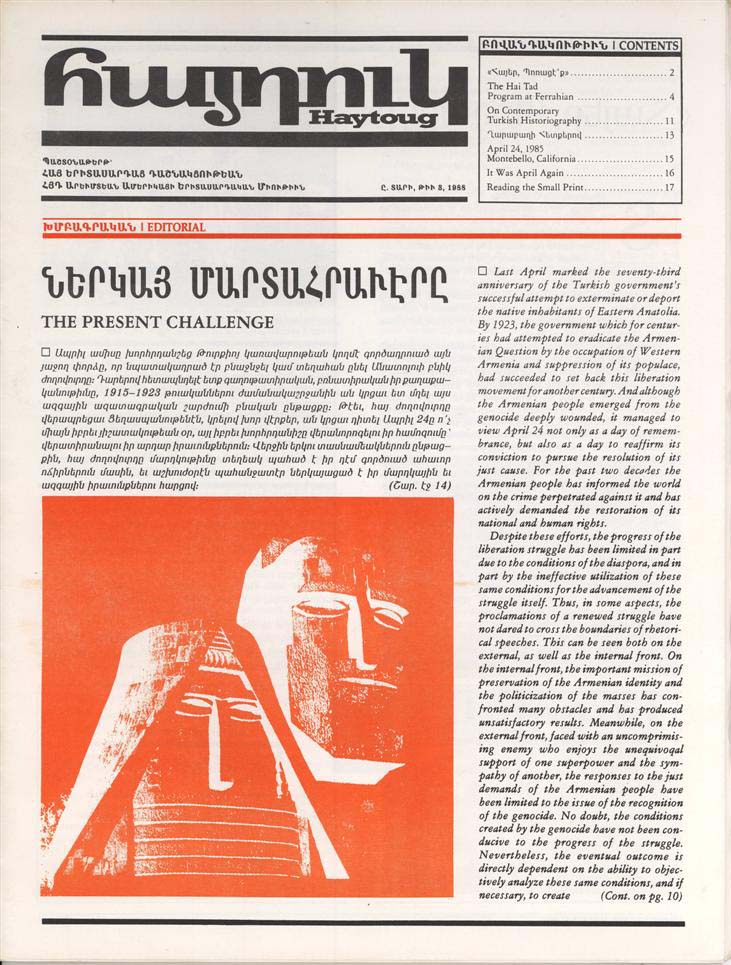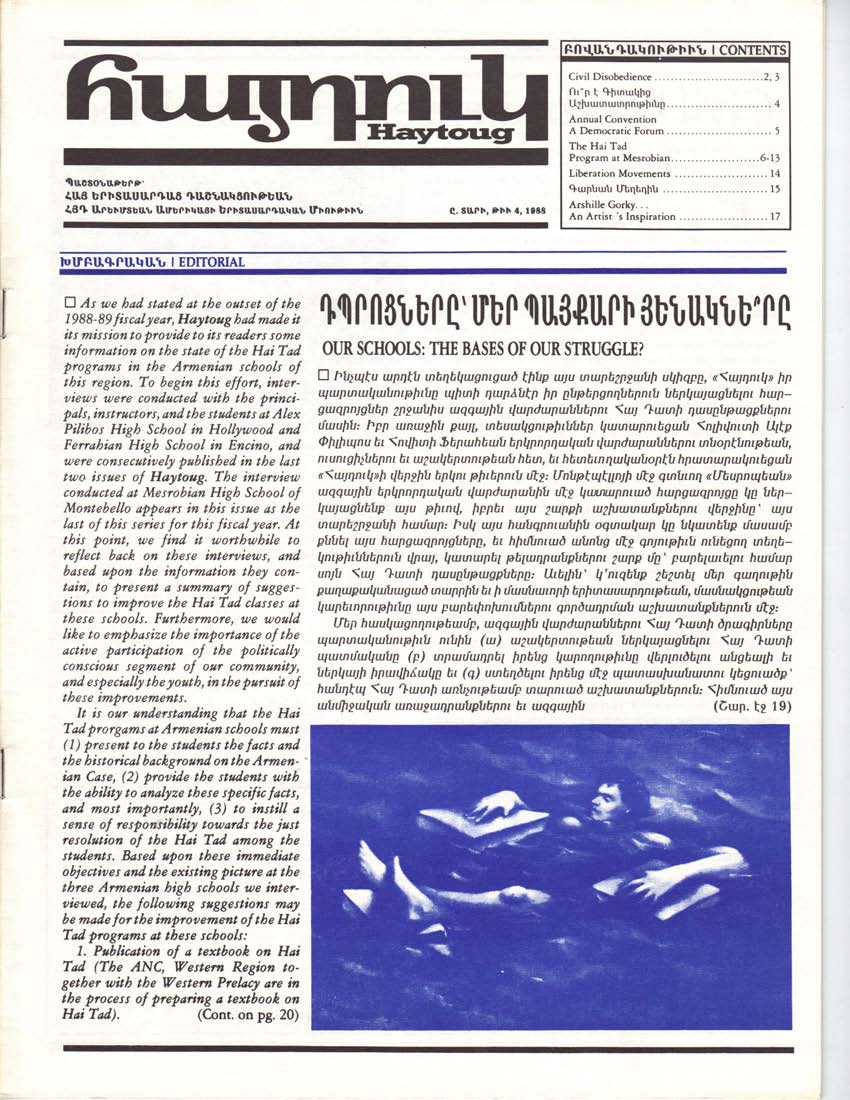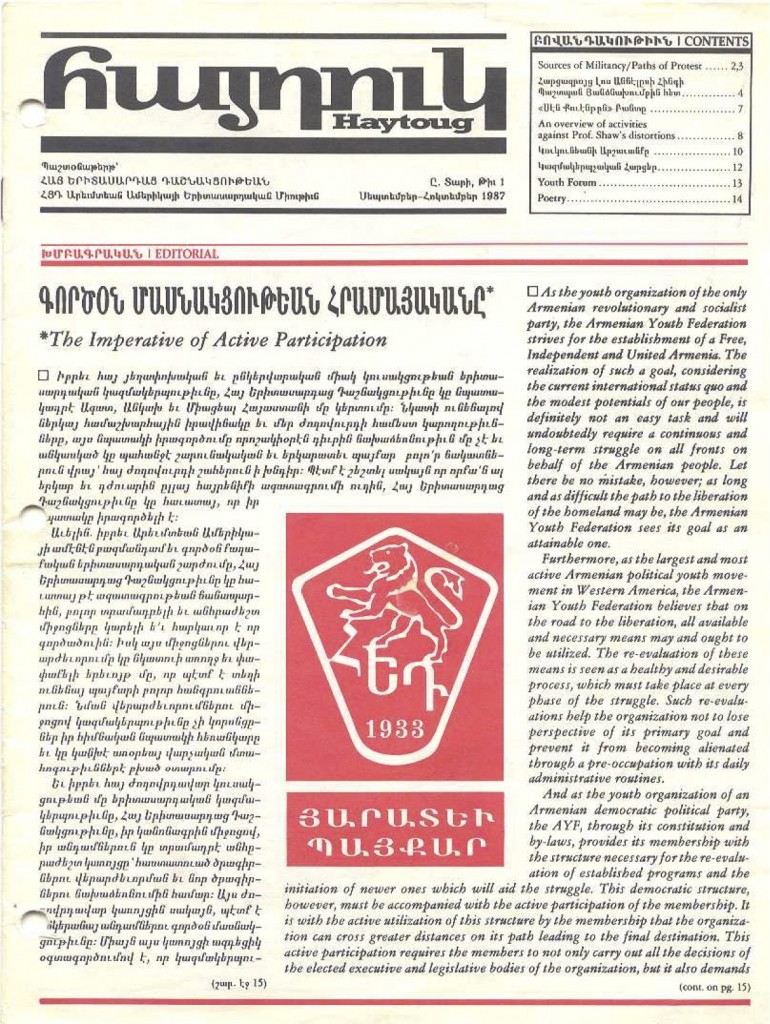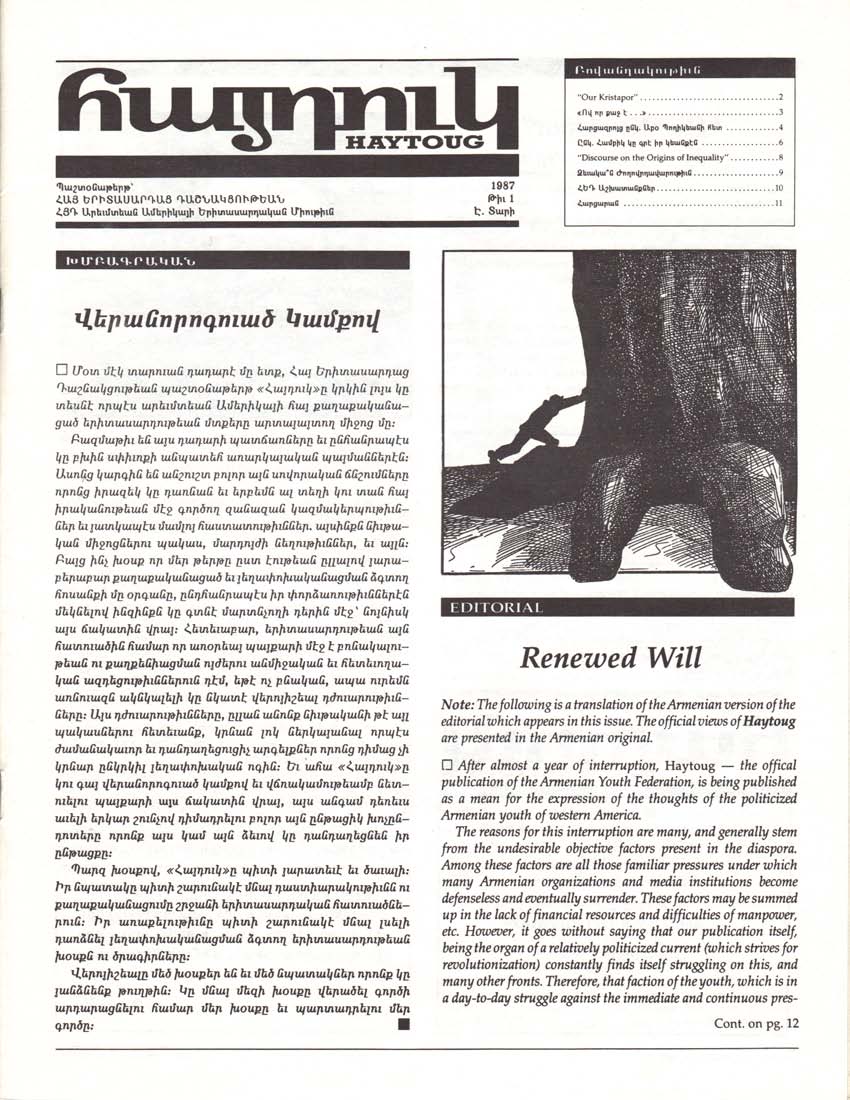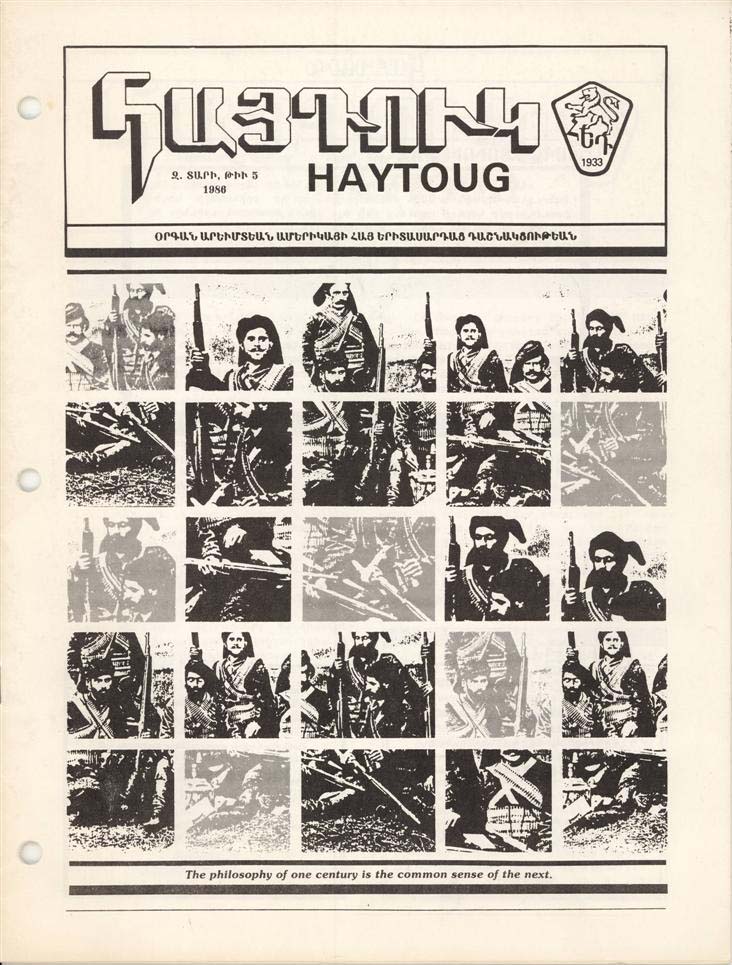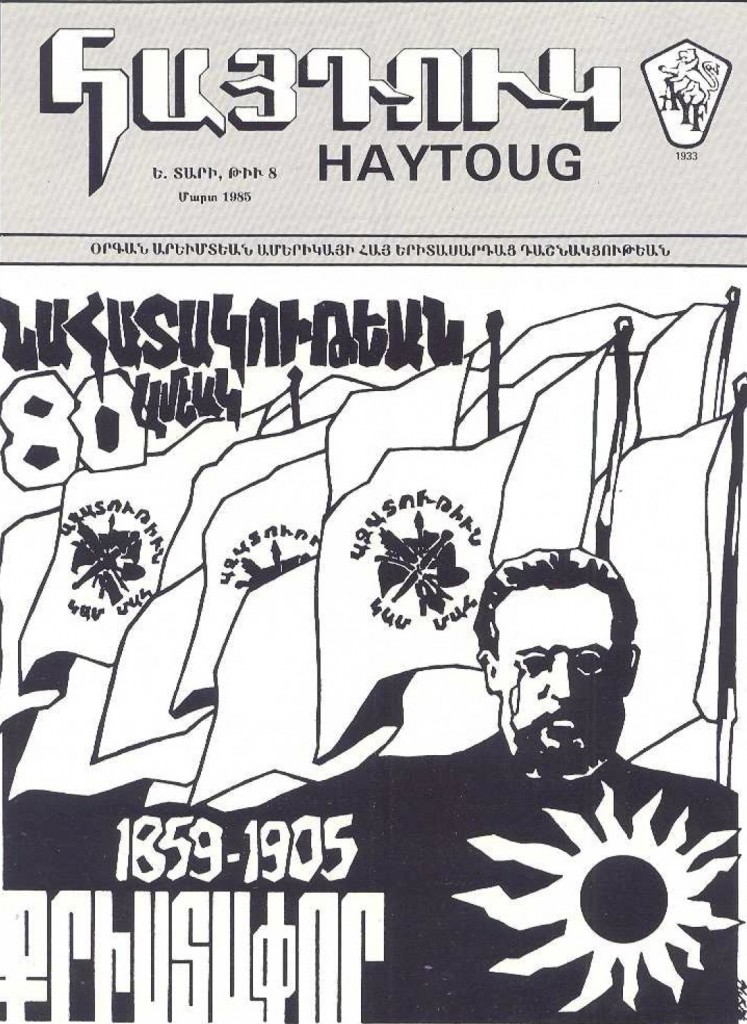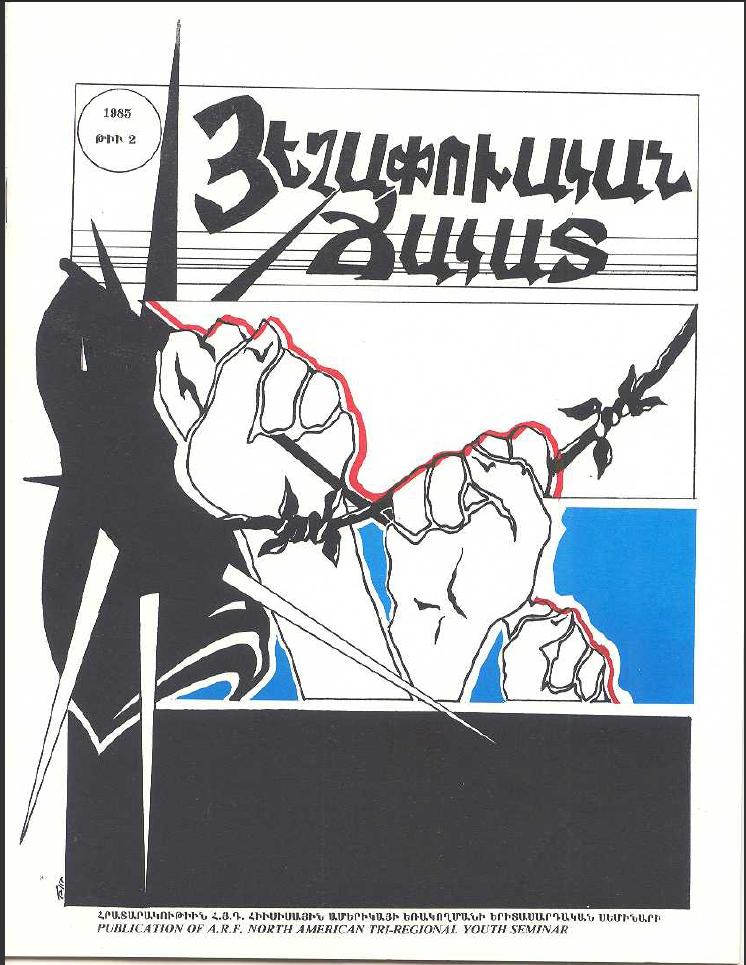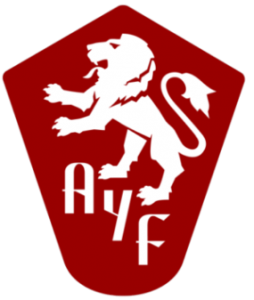UHRC Teams wit Invisible Children to Expose Plight of Uganda’s Child Soldiers
GLENDALE–On December 29th, 2009, the United Human Rights Council (UHRC) held a special documentary screening exposing the long-ignored terrors that plague the people of Northern Uganda.
Invisible Children, a nationwide organization dedicated to stopping the atrocities against innocent children taking place in Uganda, was invited to showcase the film, which chronicles the efforts of three young activists as they seek to help end the abduction and forced militarization of children in Uganda.
Attendees met with Cord Greene, President of Invisible Children at UCLA, and Janet Ikpa, an Invisible Children “rodey”, after the screening for a discussion on ways to get involved with the organization and its campaign.
“UHRC organized the screening to raise awareness about the neglected crisis in the African region,” explained Nora Kayserian, a UHRC member. “Our ultimate goal is to ensure that no one leader, no country, no government gets away with crimes against humanity, whether its genocide or the abduction of children.”
“Human rights is not an issue specific to one culture or race, it’s a human issue. I believe it is up to us as human beings to speak out against injustices in order to bring about social change. It is important to work with other human rights organizations because there is strength in numbers. We can have a greater impact and make the world more peaceful if we collaborate with other organizations.”
Invisible Children was founded in 2003 by three young students from Southern California–Laren Poole, Jason Russel, and Bobby Bailey–who decided to embark on a film-making journey half way across the world in Darfur, Sudan. En route to Darfur, they witnessed the terrifying reality that has tortured Uganda for decades—A brutal civil war waged by Joseph Koney and his guerilla group, the Lord’s Resistance Army (LRA).
Kony has been engaged in a violent campaign to establish theocratic government in Uganda. he LRA, which earned a reputation for its actions against the people of northern Uganda, has abducted an estimated 30,000 children and displaced 1.6 million people since its rebellion began in 1986.
The three activists saw Kony’s brutality first-hand during what was supposed to be a short layover in a village in Uganda, as his guerilla’s raided villages across Northern Uganda, annihilating communities and kidnapping their children.
“Invisible Children, Rough Cut” became the first documentary to capture the atrocities in the central African nation. The film quickly gave rise to a global campaign to raise awareness about the LRA rebellion and their crimes against humanity.
The film, which continues to be shown at university campuses and communities across the country, inspired thousands last year to call on President Obama to lead the effort to stop Koney, rescue the child soldiers and commit to the recovery of war affected areas. Thus far, over 250,000 people have signed the “Citizens Arrest Warrant for Joseph Kony” and 193 Members of Congress have co-sponsored the LRA Disarmament Bill. Click here to sign the petition
The organization has also been working to rebuild schools in war-torn Northern Uganda. Through its “Schools for Schools” program, Invisible Children empowered students at 1,600 schools across the US last year to raise more than $740 million in 100 days to revive and rebuild 11 partner schools in Uganda.
The documentary stands as the foundation for this activism, inspiring regular people across America to action. “When I first started college, I wasn’t really into anything cultural, I didn’t really care about that stuff,” said Ikpa, a volunteer who travels from community to community screening the documentary for people. “But when I was a registered assistant in the dorms at UCSB, my friend came to me and told me that I have to watch this video. After I saw it, I started bawling. I couldn’t control myself. I had to do something.”
“Now I’m making a real difference for people in Uganda,” she added. “I wouldn’t be doing what I was doing if I didn’t think my actions mattered.”
Kayserian pointed to Ikpa’s heartfelt remarks as the reason why the UHRC sought to screen the film. “Our broader vision and mission is to raise awareness and activate people to take action against human rights violations in whatever way they can,” she explained. “We want to educate and empower in any way possible, whether it’s through film screenings, art, poetry, or direct action.”
The documentary showing, in that regard, marked a stepping stone for the UHRC’s activities for 2010. On January 15, it will be hosting an evening spotlighting the activists of Turkey who have been targeted, harassed and even murdered for their efforts to advance Kurdish human rights, Armenian Genocide recognition, and freedom of speech and equality.
The event, titled “The Opposite of Silence,” will begin at 8:00pm at the Glendale Armenian Youth Center, located at 211 West Chestnut St. Glendale CA 91204. It will showcase a blend of art, music, video and speeches and feature remarks by Kani Xulam of the American Kurdish Information Network, who will discuss the ongoing plight of Turkey’s 30 million Kurds and their decade’s long struggle for liberation against Turkish oppression.
The United Human Rights Council is a committee of the Armenian Youth Federation. By means of action on a grassroots level, it works toward correcting and exposing the human rights violations of governments that distort, deny, and delude history to disguise past and present genocides, massacres, and human rights violations. For more information about the Opposite of Silence or on the activities and mission of the UHRC, contact: uhrc@ayfwest.org
International Conference of ARF Youth and Student Organizations Concludes in Yerevan
 YEREVAN (ARF Press Office)–On the weekend of December 18-20, an international conference of the highest bodies of the ARF’s youth and student organizations took place in Yerevan.
YEREVAN (ARF Press Office)–On the weekend of December 18-20, an international conference of the highest bodies of the ARF’s youth and student organizations took place in Yerevan.
Representatives from the leadership of 6 of the ARF’s student associations, 17 of its youth organizations, and 17 of its junior groups were in attendance at the conference. The total number of delegates was 49, with participants from such distant countries as Canada, the United States, France, Greece, Egypt, Lebanon, Iran, Artsakh, and Armenia.
The 3-day meeting examined the most critical issues facing the Armenian youth today. It reviewed some of the obstacles for the ARF’s youth and student organizations around the world and formulated concrete strategies for overcoming them, placing specific emphasis on the need to carry out work which strengthens ties between youth in Armenia and the Diaspora.
Conference participants also focused their attention on the recently signed Armenia-Turkey Protocols, once again, expressing their opposition against the many preconditions inherent within the agreement. The conference unanimously demanded that the Armenian government immediately cease its participation in the Protocol process and adopt a position in its foreign affairs which respects the dignity and rights of the Armenian people. It was stressed that relations between Armenia and Turkey must be based on the latter’s recognition of the Armenian Genocide and the right of Armenians to have restored the lands from which they were removed and exiled.
On the issue of Artsakh, the meeting made clear that the only alternative to independence is Artsakh’s official reunification with the Republic of Armenia. There is no other alternative to these two options. The conference affirmed that the destiny of Artsakh must remain within the hands of its population and that Armenian youth around the world stand ready to defend its security, rights, and freedom. The meeting also called on the international community to immediately take steps to halt Azerbaijan’s hostile threats and constant war rhetoric.
The Georgian government’s biased policies toward its Armenian population were also examined by the conference and deemed to be both unacceptable and reprehensible. The continued suppression of the rights of the Armenians in Javakhk and the destruction of cultural-historic monuments in Tbilisi are the most recent manifestations of this anti-Armenian tendency. The solution to this unhealthy condition is the autonomy of Javakhk within a federated Georgia and the guaranteed protection of the cultural rights for all Armenians living in Georgia.
Conference attendees also reaffirmed their commitment to continue struggling for the establishment of social justice, protection of human rights, and development of genuine democracy for all citizens within the Republic of Armenia.
The highest international conference of ARF youth and student organizations called on all Armenian youth worldwide to remain vigilant against foreign pressure, to consciously follow political developments, stand up against the domestic and international suppression of Armenian people’s rights, and to vehemently express its will in these trying times for our people’s destiny.
International Conference of ARF Youth and Student Organizations
20 December 2009
Yerevan

